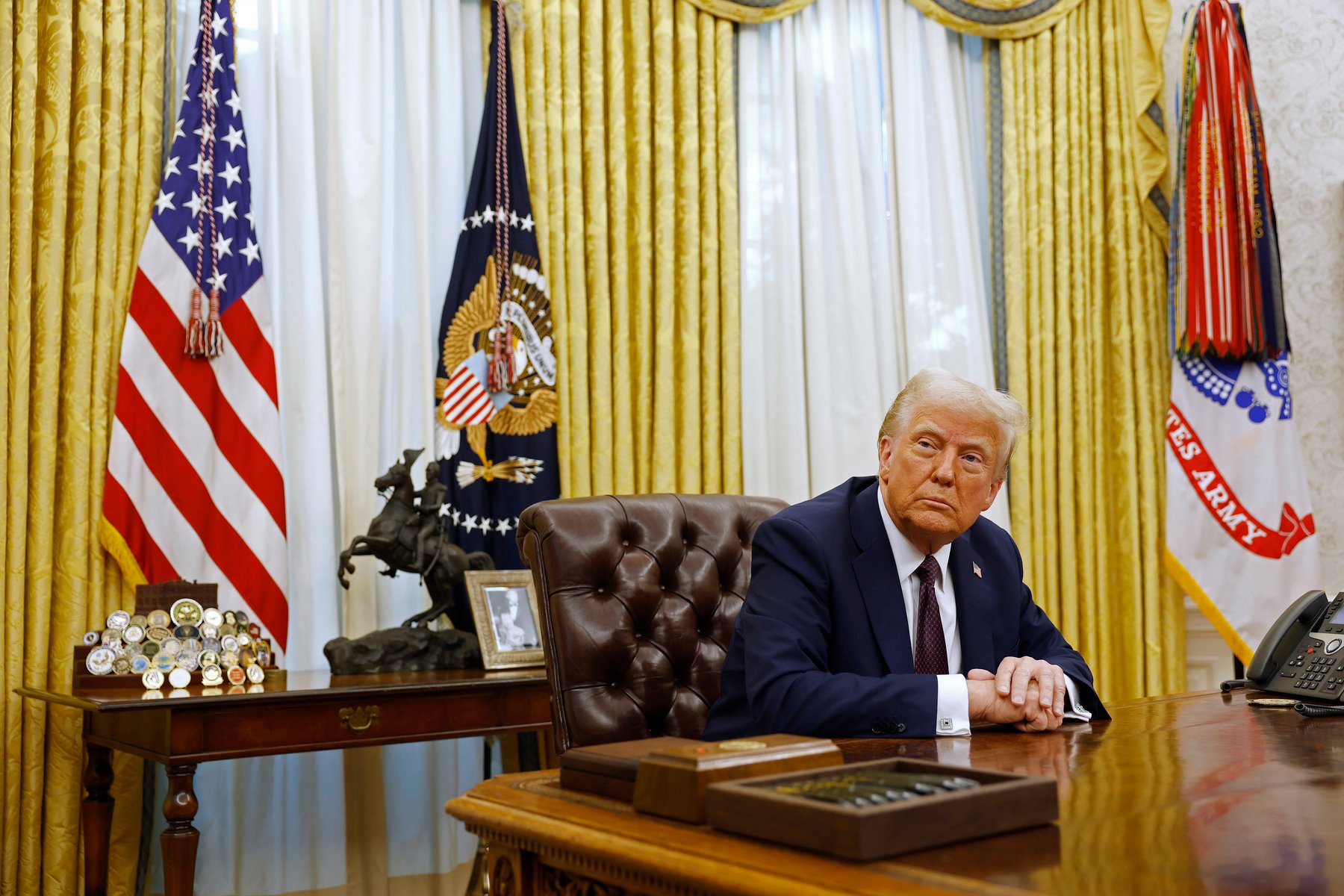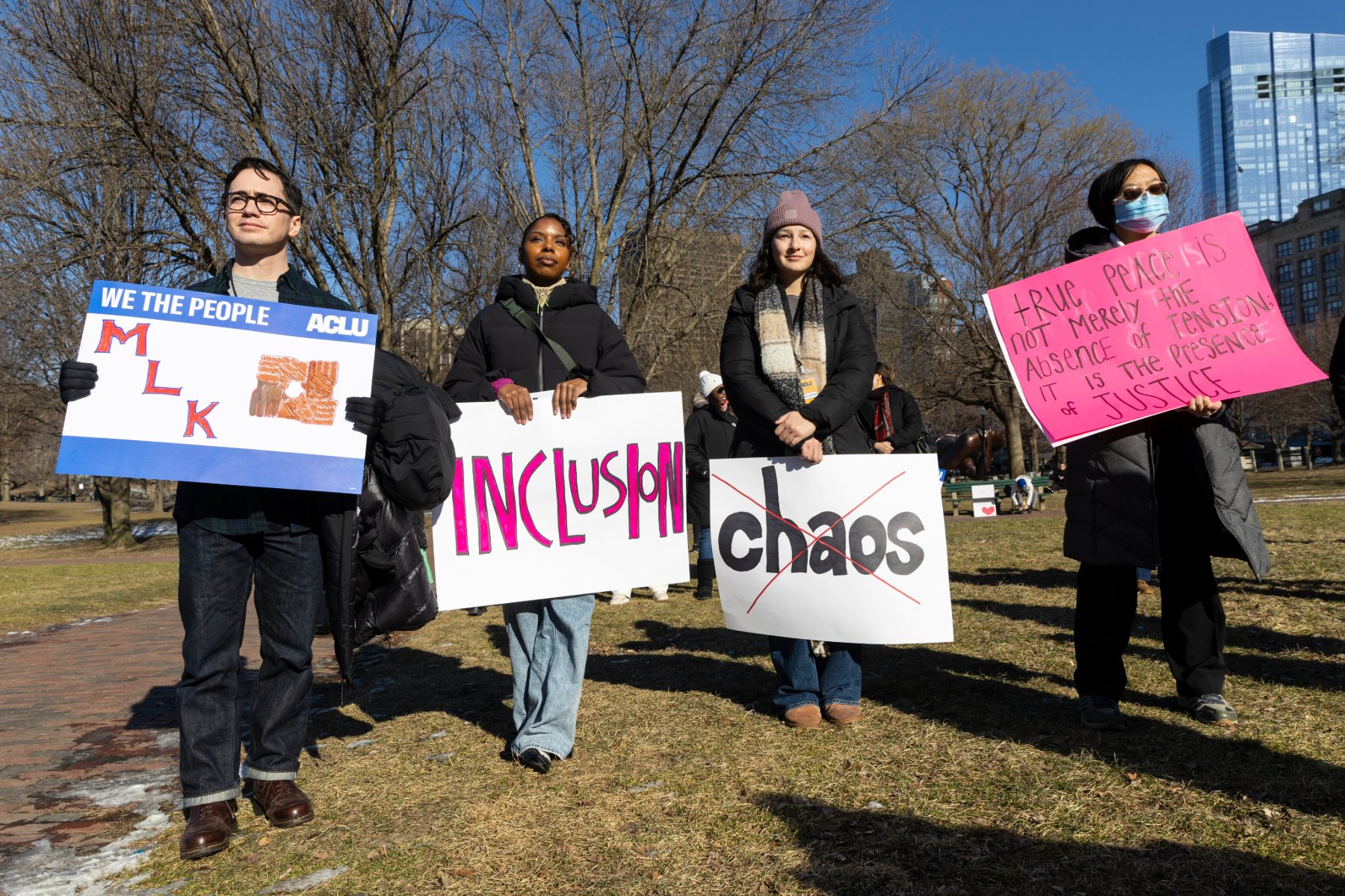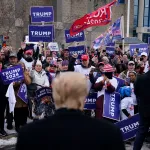This column first appeared in The Amendment, a biweekly newsletter by Errin Haines, The 19th’s editor-at-large. Subscribe today to get early access to her analysis.
Our nation’s history has been shaped by the work of making real the ideal of equality that was written into our founding documents and has long been regarded as a measure of truly representative democracy.
The start of a new administration is a chance to define who we are as a country, to get us closer to the more perfect union our founders envisioned. In his inaugural address on Martin Luther King Jr. Day, President Donald Trump called for unity and for the country to become a colorblind meritocracy. But his actions in his first days in office defied the Constitution, years of precedent, and a set of national norms and values.
The president’s opening focus has been on rewarding toxic masculinity and restoring White men to their rightful place in our democracy and society. He issued executive orders releasing from federal prison many of the people who stormed the Capitol on January 6, 2021; attempting to rewrite the criteria for citizenship; and ending federal protections against discrimination, diversity initiatives and a broader definition of gender.
Trump’s agenda is outlined in inflammatory terms, and the cumulative effect of his early actions is an attempt to define how certain people get to participate in public life. It’s a direction that is not only at odds with King’s legacy of a freer, fairer, more equal and inclusive society, but a rejection of gender and racial equity as part of a healthy democracy.
-
Read Next:
Instead, after his winning campaign pledge to Make America Great Again, Trump’s second-term priority is moving quickly to establish who will benefit — and who gets to be an American.
“Trump and all the people around him understand deeply that gender equity and democracy are linked up, and they have a broader agenda to undermine our democracy,” said Fatima Goss Graves, president of the National Women’s Law Center. “They’re going to keep a big narrative out there that is filled with these constrained ideas of gender and then dismantle the rights people have come to rely on, one at a time.”
Four years ago, President Joe Biden took office also pledging unity and promised to prioritize ending systemic inequality as one of his governing pillars. Many of Trump’s executive orders this week were aimed at dismantling such efforts, with language that echoed Trump’s Inauguration Day pledge to “end the government policy of trying to socially engineer race and gender into every aspect of public life.”
Diversity is not a value of “American greatness,” as defined in Trump’s executive orders, casting efforts to increase equity as discriminatory. Whether women — who make up slightly less than half of the U.S. workforce — people of color or LGBTQ+ people are represented is incidental. Gains in representation and greater access to opportunity for these groups in America’s workplaces has helped to close the equity gap.
On the campaign trail, Trump told his voters that he would protect women, “whether they like it or not.” In an executive order issued Monday, entitled: “Defending Women From Gender Ideology Extremism and Restoring Biological Truth to the Federal Government,” Trump ordered the federal government to recognize male and female as the only genders, effectively erasing transgender and nonbinary Americans from public life under the guise of concern for women’s safety.

“Efforts to eradicate the biological reality of sex fundamentally attack women by depriving them of their dignity, safety, and well-being,” the order reads. “The erasure of sex in language and policy has a corrosive impact not just on women but on the validity of the entire American system.”
Meanwhile, Trump eliminated what Goss called a “core tool” in forcing institutions to address sex discrimination in hiring, pay and harassment in an executive order that ended a civil rights-era order that expanded equal employment, requiring federal contractors to take affirmative action in new hiring and benefitting women in particular.
Institutions like colleges and universities “understood that they had significant obligations based on race after the Civil Rights Act, but they weren’t following it based on gender,” Goss said, noting that the protections of the order signed by President Lyndon Johnson preceded the Title IX laws passed in 1972 that ended sex-based discrimination in schools receiving federal funding.
On Monday, Trump also pardoned hundreds of people — mostly White men, many of them accused or convicted of violent crimes — who attacked the U.S. Capitol on January 6, 2021, in an effort to stop the certification of the 2020 election that Trump falsely claimed he had won. Many of them are returning to their communities after they were turned in by relatives, neighbors or others.
Their release was another campaign promise fulfilled by Trump, whose reelection insulated him from further prosecution or consequences for his alleged role in the Capitol attack.
The rioters’ actions that day were a display of the toxic masculinity that has largely defined the president’s base and became a cause Trump campaigned on. Instead of facing further consequences for their actions, they were rewarded by their president.
-
Read Next:
Four years ago, Biden took office vowing to unite the country, and departed having failed in that attempt. Trump has given lip service to unity, but none of his actions have united the country, either, though they have already reshaped our democracy.
Trump’s definition of unity is for the coalition of Americans who agree with his vision for the country: one that celebrates rioters and condemns diversity, that eschews pronouns as politically correct and values his idea of patriotism over people’s lived experiences.
Race and gender have always been the unfinished business of our politics. In his second term, Trump’s approach is one that fails to acknowledge history or respect people’s differences. It constrains the ability of women, LGBTQ+ and people of color to be their full selves, telling them instead that they must hew to his narrow understanding of how to be American.
Our nation’s forebearers also excluded these groups in our founding documents, but our 248-year journey has been one of expanding who gets to be an American. That has been the collective meaning of making America great.









